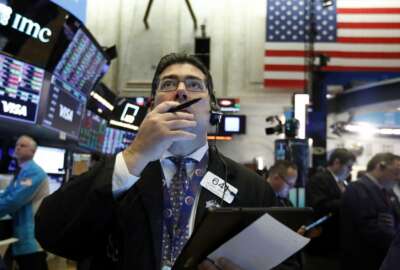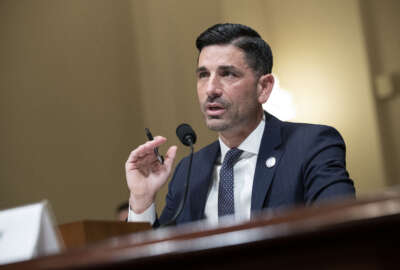
Will coronavirus KO your TSP account?
Well, it finally happened. After 10-plus years, the longest bull market in history, the stock market had an historic correction.
Well, it finally happened. After 10-plus years, the longest bull market in history, the stock market had an historic correction. It may correct itself again, upward or downward or more likely both, as the impact of the coronavirus is felt around the world.
Some federal investors, after last weeks fall, sold their C, S and I fund shares and moved to the G fund — the safest and lowest yielding option in the Thrift Savings Plan. Some others saw the whopper downturn last week as a buying opportunity. They switched from the G and F treasury and bond funds and bought C, S and or I funds which were on sale — at least compared to the week before. Others who retreated to the G fund in 2008 and have remained their waiting for a good time to come back to the market to come back, remain in their safe harbor. So we asked Washington area financial planner Arthur Stein for his take on the events of the last week. Many of his clients are active or retired feds so he keeps a special eye on the TSP. Here’s his take:
Has the coronavirus made you feel sick about your investments?
The coronavirus epidemic caused major swings in stock and bond funds last week. Bond prices and funds like G and F increased and stock prices and funds like C, S and I sharply decreased. TSP returns are detailed below.
Bond prices increased as investors transferred money from stocks into bonds and bank accounts. The increased bond purchases caused interest rates to fall to historic lows (interest rates go down when prices of existing bonds increase).
Year-to-date returns for stocks and bonds, as reflected by three of the TSP funds, followed the same pattern:
What makes last week’s market changes scarier, is that no one seems to know how disruptive the coronavirus may become and how long it may last. What is known, is that fighting the coronavirus has been extremely disruptive to the world economy and that disruption could potentially become worse.
Stock prices are reflecting the negative business effects of the coronavirus outbreak. In affected countries, consumers stay home instead of going to restaurants, movies, nightclubs, etc.; factories close; travelers cancel trips or don’t book future trips; demand for energy and commodities declines; countries ban visitors from other countries; and local and national governments are forced to spend large amounts monitoring their citizens and helping those affected. That reduces forecasts for future corporate profits, which causes stock prices to decline.
There is no easy answer for TSP investors because the future path of the coronavirus is unknown. Some viruses don’t last much longer than 12 months. Others, such as the flu, recur each year, frequently after changing in important ways. The common cold is a virus that never goes away.
The quandary for TSP investors is whether to assume the worst (end of the world as we know it) or that this virus will follow a more normal path. A more normal path meaning that the ill effects will not last much more than a year or sicken or kill a significant percentage of the population.
More optimistic investors may see the current declines as an opportunity to invest in the stocks funds when they are low. However, that is not a recommendation.
In the meantime, do your best to make sure that you, your family and friends stay well by following CDC guidelines: Avoid close contact with people who are ill; avoid touching your eyes, nose and mouth; stay home when sick; cover your cough or sneeze; clean regularly touched surfaces; and frequently wash your hands.
Nearly Useless Factoid
By Amelia Brust
In Mongolia’s capital city of Ulaanbaatar stands a monument to the Beatles, as a symbol of freedom. Shaped like an apple and depicting each of the Fab Four on one side and a Mongolian guitarist on the other side, the monument sits near the State Department where, in the Soviet era, young people gathered to listen to forbidden Western music and talk politics. The country had a communist government from its independence in 1921 until a revolution in 1990, at which point it transitioned to a multi-party representative democracy.
Source: Atlas Obscura
Copyright © 2025 Federal News Network. All rights reserved. This website is not intended for users located within the European Economic Area.
Mike Causey is senior correspondent for Federal News Network and writes his daily Federal Report column on federal employees’ pay, benefits and retirement.
Follow @mcauseyWFED
Related Stories







